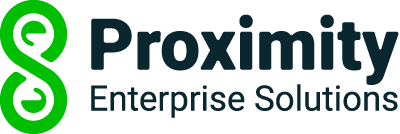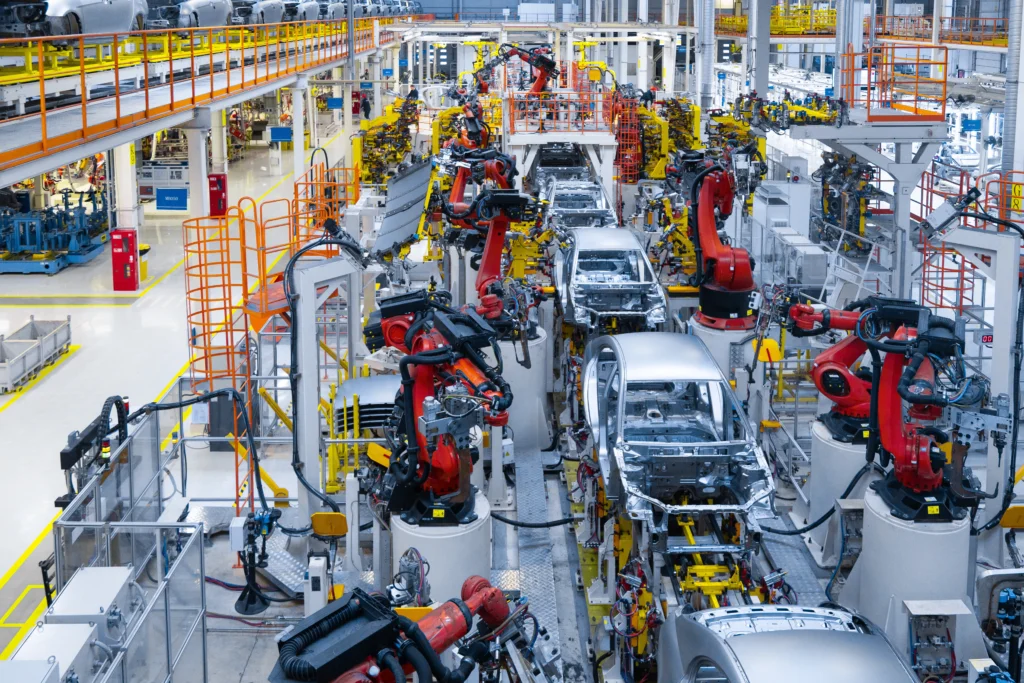The automotive industry is undergoing a profound transformation, with technology playing a pivotal role in its evolution.
One of the key drivers of this change is the implementation of Enterprise Resource Planning (ERP) systems.
These systems are vital for automotive manufacturers aiming to improve their operations. They help enhance product quality and support informed decisions with real-time data insights.
In this guide, we explore the top 10 automotive ERP systems for 2025. We highlight how these systems are shaping the future of automotive manufacturing.
The automotive industry in numbers
Before we explore the top automotive ERP systems available, let us first examine the automotive market itself.
According to data from the European Automobile Manufacturers’ Association (ACEA), the global automotive market was valued at about $3.6 trillion in 2023.
This valuation is expected to rise to a staggering $6.9 trillion by 2033.
As well as the technology facilitating the manufacture of the vehicles themselves, it is fair to say that there are a number of significant trends impacting the technology in those vehicles.
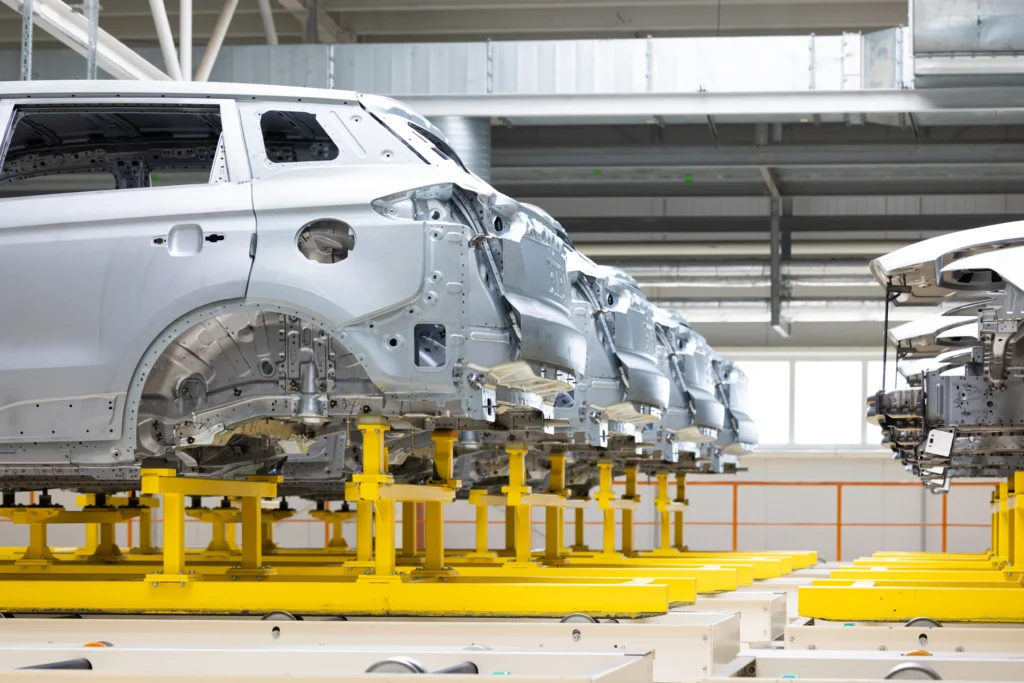
Electric vehicle adoption (and other alternative drive trains); greater integration of autonomous technology and connectivity in vehicles; and a shift to online purchase of vehicles themselves (initially driven by the likes of Tesla).
Additionally, there has been a significant growth in the automotive parts market, which was valued at $2.36 trillion in 2024.
By 2033, that market is predicted to grow to $3.34 trillion.
Why Automotive ERP Systems Matter
In order to facilitate this level of growth in the automotive manufacturing sector, efficiency and precision are paramount.
ERP systems are the linchpins that integrate various business processes, ensuring seamless operations across the board.
From managing the supply chain to scheduling and planning production, these systems offer a centralised hub for data and operations management, thereby helping manufacturers to maintain a competitive edge.
Importance of Integration
Integration is at the heart of the very best automotive ERP systems.
These platforms connect disparate functions such as inventory management, procurement, OEM suppliers, and production into one, single “source of the truth”.
This integration leads to improved communication across departments, minimises downtime, and ensures that all stakeholders are literally, on the same page.
Enhancing Competitiveness
In an industry where margins are tight, manufacturing ERP systems offer a competitive advantage by streamlining operations and reducing unnecessary costs.
They provide the agility needed to respond swiftly to market changes, thereby maintaining a competitive edge in a global market.
Data-Driven Decision Making
The ability to make informed decisions quickly is a game-changer in the automotive sector.
ERP systems offer real-time data analytics that empower managers to make strategic decisions based on current trends and operational insights.
This capability not only enhances decision-making but also drives long-term business success.
Key Benefits of Automotive ERP Systems
Automotive ERP systems do more than streamline operations.
They provide many benefits that can change how manufacturers work.
Here, we explore some of the most significant advantages.
Streamlined Operations
One of the primary benefits of ERP systems is their ability to automate and streamline manufacturing processes.
By reducing manual intervention, these systems minimise human errors, leading to more efficient production cycles.
Automation also frees up valuable time for employees to focus on more strategic tasks, further enhancing productivity.
Improved Quality Control
Quality is non-negotiable in the automotive industry.
ERP systems provide real-time data and analytics, enabling manufacturers to monitor and improve product quality consistently.
This ensures compliance with industry standards and helps maintain brand reputation in a competitive marketplace.
Enhanced Decision-Making
Access to real-time information is invaluable for swift and informed decision-making.
ERP systems offer dashboards and reporting tools that provide insights into various aspects of the business. This allows managers to identify issues early and implement corrective measures promptly, thereby enhancing overall operational efficiency.
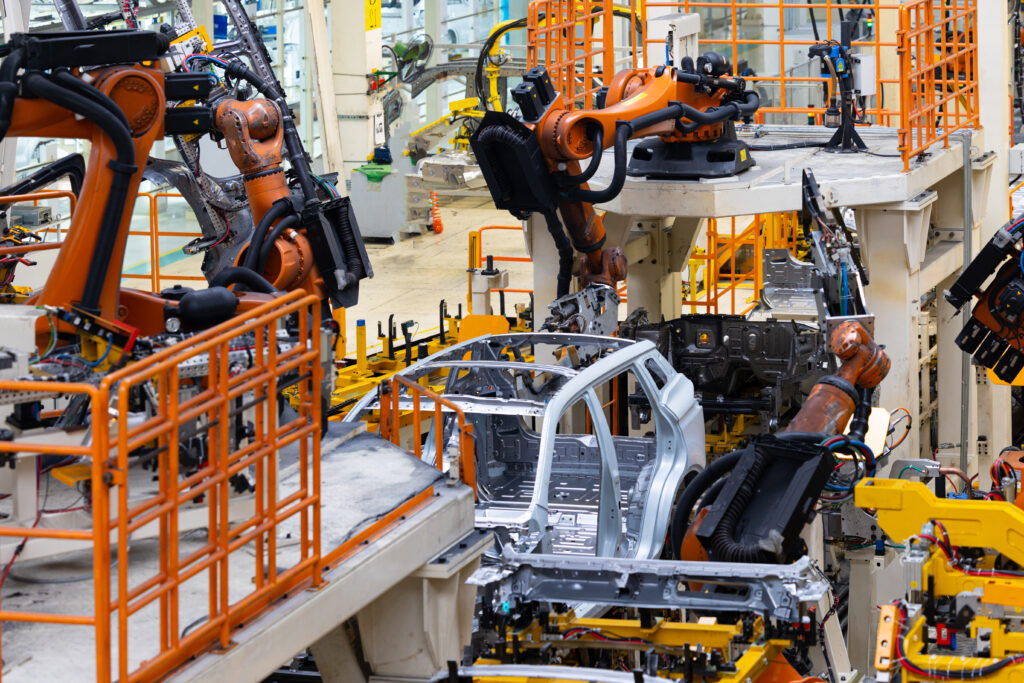
Cost Efficiency
ERP systems contribute to cost savings by optimising resource allocation and minimising waste.
By providing insights into inventory levels and production needs, these systems help manufacturers reduce excess inventory and avoid overproduction, leading to significant cost reductions.
Just in Time manufacturing has become a key strategy within the automotive and automotive parts industry.
Scalability
As businesses grow, their operational needs evolve. ERP systems are designed to scale alongside business growth, accommodating increased demands and complexities without compromising performance.
This scalability ensures that the ERP system remains a valuable asset even as the business landscape changes.
Top 10 Automotive ERP Systems in 2025
The year 2025 promises to be a pivotal year for automotive ERP systems, with several platforms leading the charge in innovation and efficiency.
Below, we explore the top 10 systems that are making waves in the industry.
1. DELMIAWorks manufacturing ERP & MES System
DELMIAWorks, a rebranded version of IQMS EnterpriseIQ following its acquisition by Dassault Systemes (the developer of SOLIDWORKS), is a powerhouse in manufacturing ERP solutions tailored for the automotive industry.
It excels in providing comprehensive solutions for production management, quality control, and supply chain integration.
The system’s real-time monitoring features ensure manufacturers uphold high standards of efficiency and quality, making it a preferred choice for many.
DELMIAWorks has consistently featured in other ‘top 10 listings’ over the years, including the Top 10 Automotive ERP Systems in 2024 by digital transformation consultancy, ElevatIQ.
Comprehensive Production Management
DELMIAWorks offers robust tools for managing every aspect of production, from scheduling to execution. This comprehensive approach ensures that production lines run smoothly and efficiently, reducing downtime and increasing output.
Quality Control Excellence
With built-in quality control features, DELMIAWorks enables manufacturers to maintain high standards by monitoring processes in real-time. This ensures that any deviations from quality standards are caught early, preventing costly recalls and ensuring customer satisfaction.
Supply Chain Integration
Integration with the supply chain is seamless, allowing manufacturers to manage suppliers, inventory, and logistics from a single platform. This integration reduces lead times and enhances the ability to respond to market demands swiftly.
2. SAP S/4HANA
SAP S/4HANA is renowned for its powerful ERP capabilities, offering advanced analytics and real-time insights. Its cloud-based infrastructure provides scalability and flexibility, making it a top choice for large automotive manufacturers aiming to future-proof their operations.
Advanced Analytics
SAP S/4HANA’s advanced analytics tools provide deep insights into business operations, enabling manufacturers to make data-driven decisions. These insights can drive innovations in production processes and enhance overall business strategy.
Real-Time Insights
The system’s ability to provide real-time insights ensures that managers have access to the latest information, facilitating timely and informed decision-making. This responsiveness is critical in addressing operational challenges and capitalizing on market opportunities.
Cloud-Based Flexibility
Its cloud-based infrastructure ensures that SAP S/4HANA can scale with the business, accommodating growth and expansion without the need for significant infrastructure investments. This flexibility is crucial for businesses looking to adapt to changing market conditions.
3. Oracle NetSuite
Oracle NetSuite stands out for its user-friendly interface and comprehensive suite of applications. It integrates seamlessly with various business processes, providing real-time visibility into operations and facilitating effective decision-making.
User-Friendly Interface
Oracle NetSuite’s intuitive interface makes it easy for users to navigate and utilize the system’s features effectively. This ease of use enhances user adoption and maximizes the system’s value to the organization.
Comprehensive Suite of Applications
The platform offers a wide range of applications that cater to different business needs, from financial management to customer relationship management. This comprehensive suite ensures that all aspects of the business are covered, enhancing operational efficiency.
Seamless Integration
Oracle NetSuite’s ability to integrate seamlessly with existing business processes ensures that manufacturers can leverage its capabilities without disrupting current operations. This integration enhances the flow of information and improves decision-making.
4. Infor CloudSuite Automotive
Infor CloudSuite Automotive is designed specifically for the automotive sector, offering features like automotive-specific KPIs, compliance management, and supply chain optimization. Its cloud-based platform ensures easy access to data and scalability.
Automotive-Specific KPIs
Infor CloudSuite Automotive provides KPIs tailored to the automotive industry, offering insights into performance metrics that matter most to manufacturers. These KPIs help in tracking progress and identifying areas for improvement.
Compliance Management
The system’s compliance management tools ensure that manufacturers meet industry regulations and standards, reducing the risk of non-compliance penalties. This focus on compliance enhances the company’s reputation and customer trust.
Supply Chain Optimisation
By optimizing the supply chain, Infor CloudSuite Automotive reduces lead times and improves inventory management. This optimization enhances the manufacturer’s ability to meet customer demands efficiently and cost-effectively.
5. Epicor ERP
Epicor ERP is known for its flexibility and adaptability, catering to the unique needs of automotive manufacturers. It supports lean manufacturing processes and provides tools for inventory management, production control, and quality assurance.
Flexibility and Adaptability
Epicor ERP’s flexible architecture allows manufacturers to customize the system to meet their specific needs. This adaptability ensures that the system remains relevant as business needs evolve.
Support for Lean Manufacturing
The system’s support for lean manufacturing processes helps manufacturers minimize waste and maximize efficiency. This focus on lean principles enhances productivity and reduces operational costs.
Comprehensive Inventory Management
Epicor ERP provides robust tools for managing inventory, ensuring that manufacturers have the right materials at the right time. This inventory management capability reduces stockouts and excess inventory, optimizing resource use.
6. Plex Systems
Plex Systems offers a cloud-based ERP solution that focuses on smart manufacturing and real-time analytics. Its integrated platform supports everything from production scheduling to inventory management, ensuring manufacturers can operate efficiently and responsively.
Smart Manufacturing
Plex Systems’ focus on smart manufacturing leverages technology to optimize production processes. This approach enhances operational efficiency and enables manufacturers to respond to market demands swiftly.
Real-Time Analytics
The system’s real-time analytics provide insights into every aspect of the manufacturing process, from production to delivery. These insights empower managers to make informed decisions that drive business success.
Integrated Platform
Plex Systems’ integrated platform ensures that all manufacturing processes are connected, enhancing communication and coordination across the organization. This integration improves workflow and reduces operational bottlenecks.
7. Microsoft Dynamics 365
Microsoft Dynamics 365 combines CRM and ERP capabilities, offering a unified platform for managing all aspects of automotive manufacturing. Its AI-driven insights and automation features enhance productivity and decision-making.
Unified Platform
Microsoft Dynamics 365’s unified platform provides a comprehensive solution for managing both customer relationships and manufacturing processes. This integration enhances communication and coordination across the organization.
AI-Driven Insights
The system’s AI-driven insights offer predictive analytics that help manufacturers anticipate market trends and customer needs. These insights drive strategic decision-making and enhance competitive advantage.
Automation Features
Automation features in Microsoft Dynamics 365 streamline repetitive tasks, freeing up valuable time for employees to focus on more strategic initiatives. This automation enhances productivity and operational efficiency.
8. SYSPRO
SYSPRO ERP is tailored for manufacturers and distributors, offering solutions for production management, inventory control, and supply chain optimization. Its focus on operational efficiency makes it a popular choice among automotive companies.
Tailored for Manufacturers
SYSPRO’s tailored solutions ensure that manufacturers have the tools they need to optimize production processes. This focus on manufacturing enhances operational efficiency and reduces costs.
Inventory Control
The system’s inventory control features ensure that manufacturers have the right materials at the right time, reducing stockouts and excess inventory. This inventory management capability enhances resource utilization and cost efficiency.
Supply Chain Optimization
SYSPRO’s supply chain optimization tools reduce lead times and improve coordination with suppliers. This optimization enhances the manufacturer’s ability to meet customer demands efficiently and effectively.
9. abas ERP
abas ERP provides a modular and flexible ERP solution that supports the complex needs of the automotive industry. Its focus on end-to-end process management and real-time analytics enables manufacturers to streamline operations and improve quality.
Modular and Flexible Solution
abas ERP’s modular architecture allows manufacturers to customize the system to meet their specific needs. This flexibility ensures that the system remains relevant as business needs evolve.
End-to-End Process Management
The system’s focus on end-to-end process management ensures that all aspects of the business are connected, enhancing communication and coordination across the organization. This integration improves workflow and reduces operational bottlenecks.
Real-Time Analytics
abas ERP’s real-time analytics provide insights into every aspect of the manufacturing process, from production to delivery. These insights empower managers to make informed decisions that drive business success.
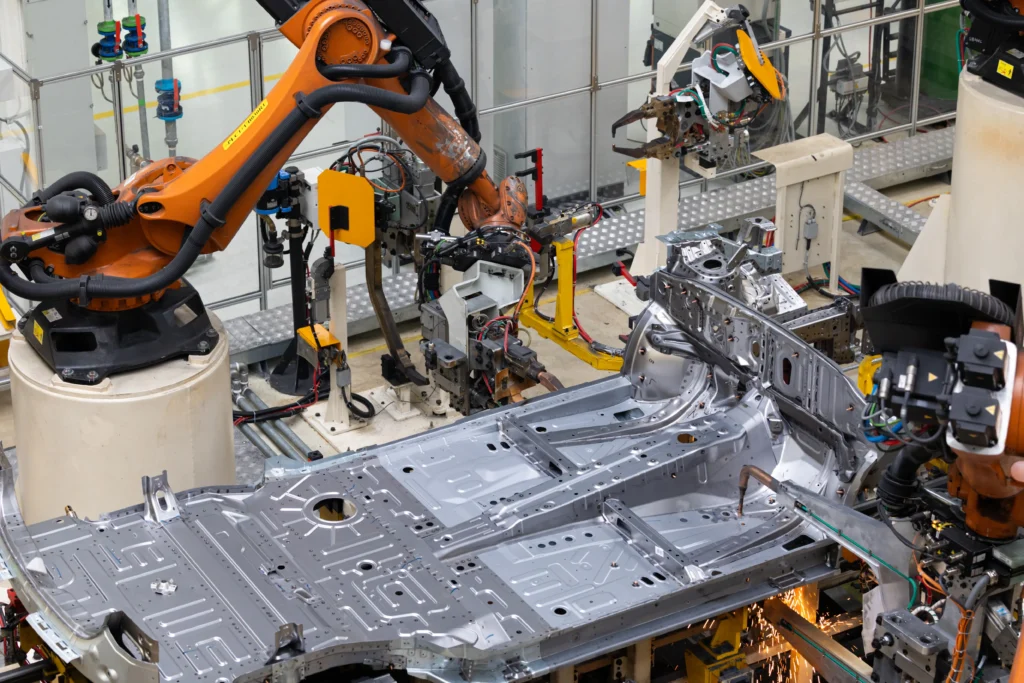
10. QAD Adaptive ERP
QAD Adaptive ERP is designed to support automotive manufacturers in navigating the challenges of a dynamic market. Its cloud-based platform offers flexibility, scalability, and advanced analytics to drive operational efficiency and innovation.
Navigating a Dynamic Market
QAD Adaptive ERP provides the tools manufacturers need to navigate a rapidly changing market. Its adaptive features ensure that manufacturers can respond to market changes quickly and effectively.
Cloud-Based Platform
The system’s cloud-based platform ensures that QAD Adaptive ERP can scale with the business, accommodating growth and expansion without the need for significant infrastructure investments. This flexibility is crucial for businesses looking to adapt to changing market conditions.
Advanced Analytics
QAD Adaptive ERP’s advanced analytics provide deep insights into business operations, enabling manufacturers to make data-driven decisions. These insights can drive innovations in production processes and enhance overall business strategy.
Choosing the Right ERP System
Selecting the right ERP system for your automotive manufacturing business involves evaluating several factors to ensure it aligns with your strategic goals.
Assessing Business Needs
Begin by identifying specific pain points and objectives within your operations. This assessment will help you determine which ERP features are most critical for addressing your unique business challenges and achieving your goals.
Considering Scalability
Consider the growth potential of your business and ensure the ERP system can scale accordingly. A scalable system will accommodate increased demands and complexities as your business expands, ensuring long-term value.
Ensuring Seamless Integration
Integration with your existing software and processes is crucial for maximizing the value of your ERP system. Ensure the system can integrate seamlessly, enhancing communication and coordination across the organization.
Prioritizing User-Friendliness
A user-friendly interface and intuitive design can significantly impact the adoption and success of the ERP system. Evaluate the system’s usability to ensure that employees can leverage its features effectively.
Evaluating Vendor Support
Vendor support is critical for smooth implementation and ongoing maintenance. Evaluate the level of support and training offered by the ERP vendor to ensure your team has the resources they need for success.
Conclusion
In 2025, the automotive industry will continue to rely on ERP systems to drive efficiency, quality, and innovation.
The top 10 automotive ERP systems highlighted in this article represent the forefront of technological advancement in the sector, providing manufacturers with the tools necessary to thrive in a competitive landscape.
By understanding the capabilities and benefits of these ERP systems, manufacturing managers, business analysts, and ERP consultants can make informed decisions to enhance operational efficiency and achieve their strategic goals.
Whether it’s optimising production processes, improving product quality, or leveraging real-time data for better decision-making, the right ERP system can transform the way automotive manufacturers operate, setting the stage for sustained success.
Contact us to learn more about DELMIAWorks automotive ERP specific features.
